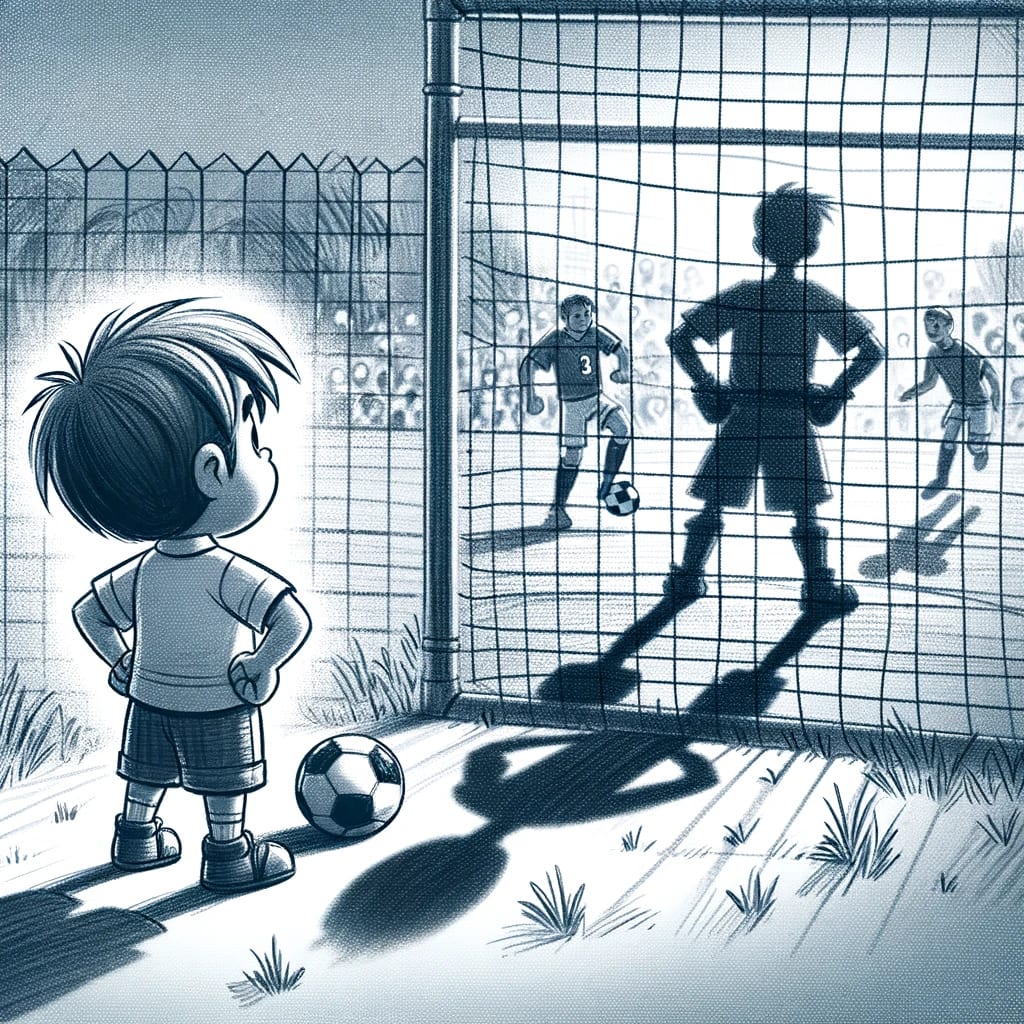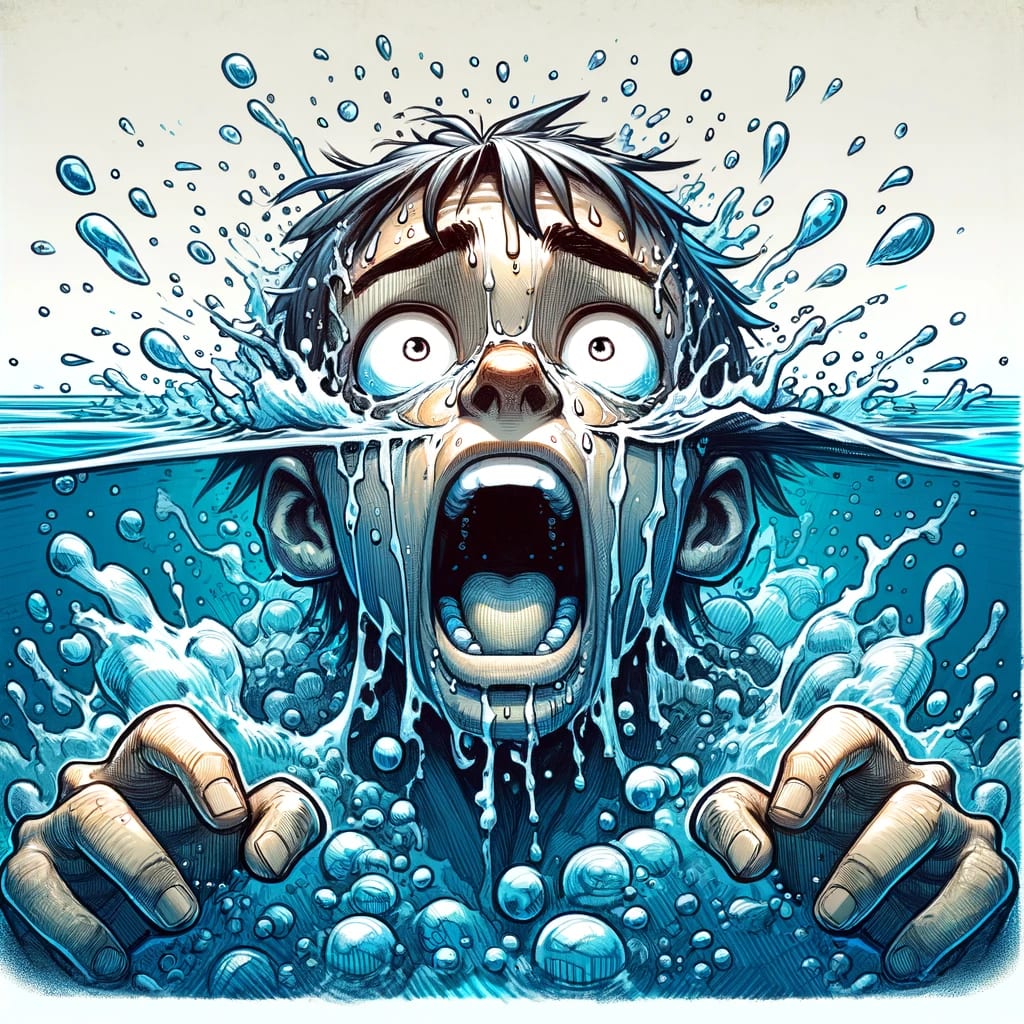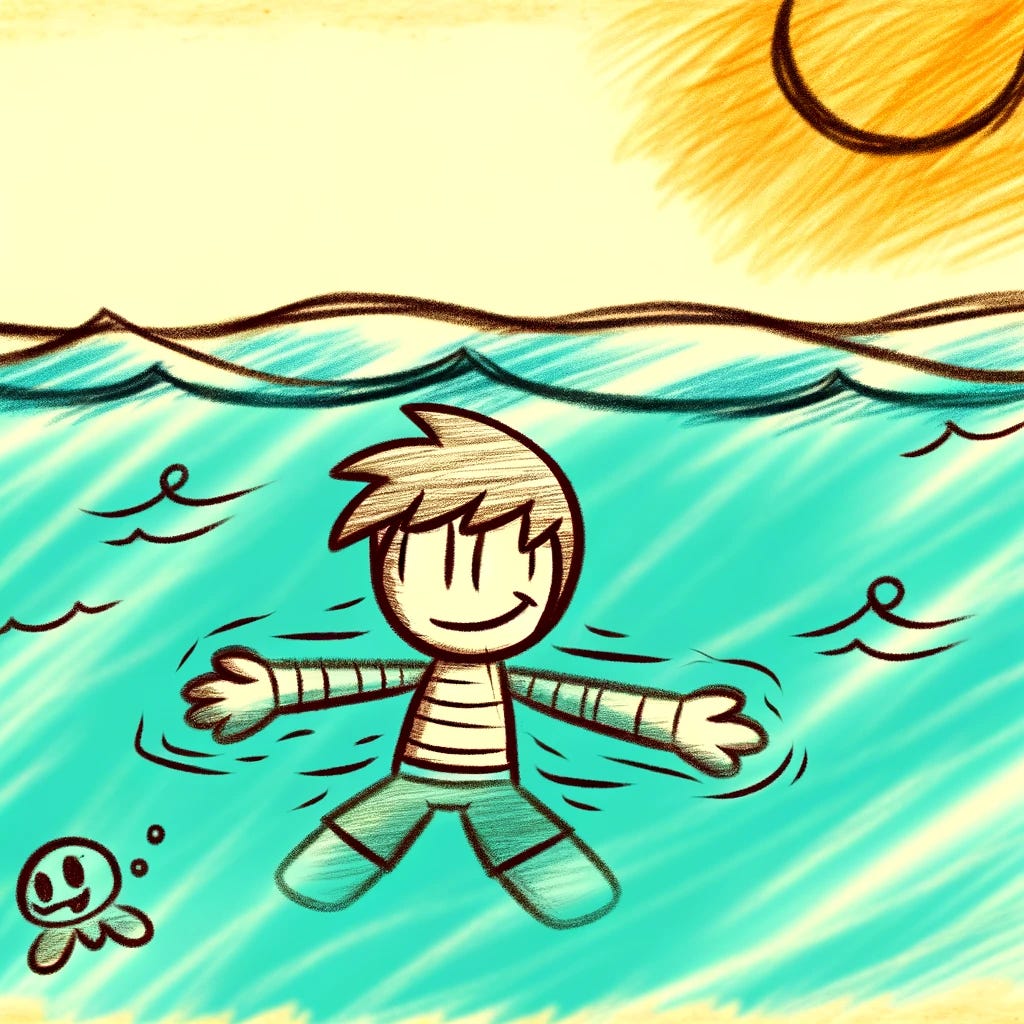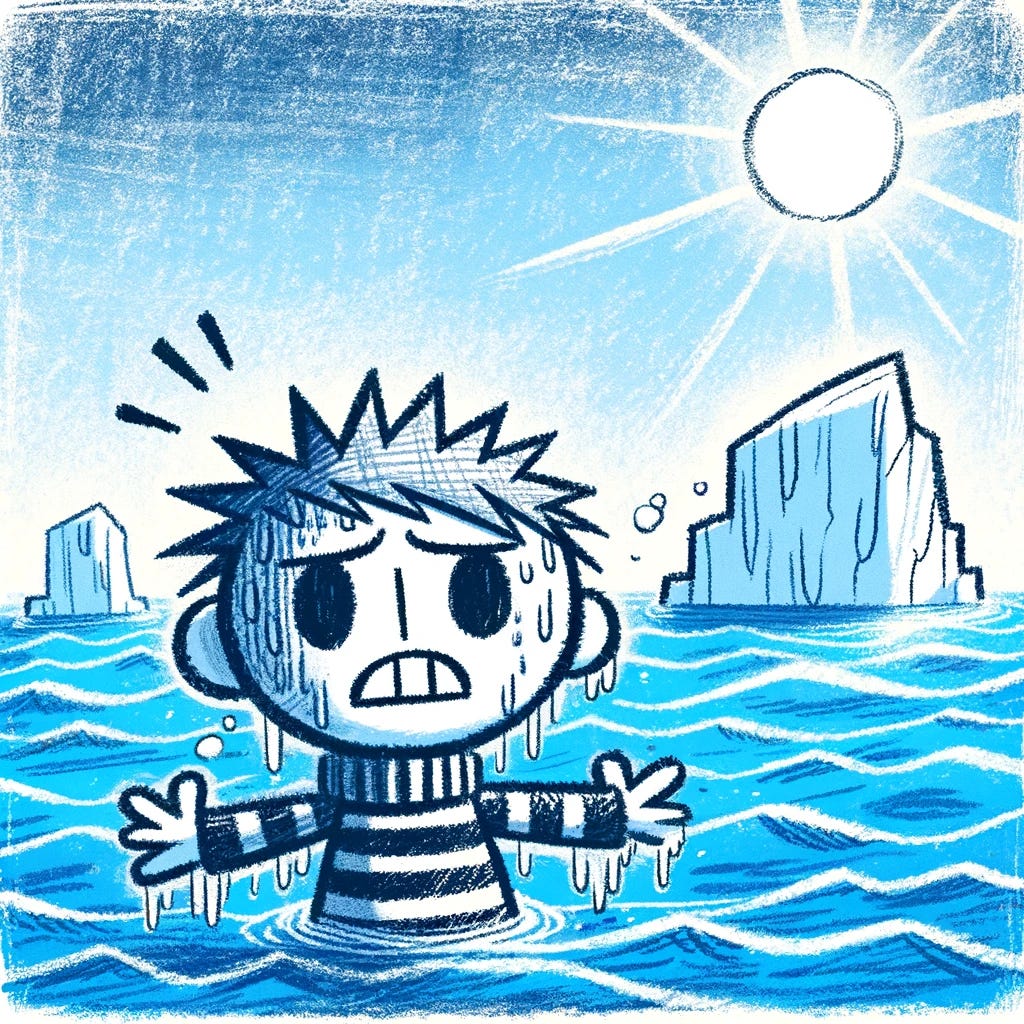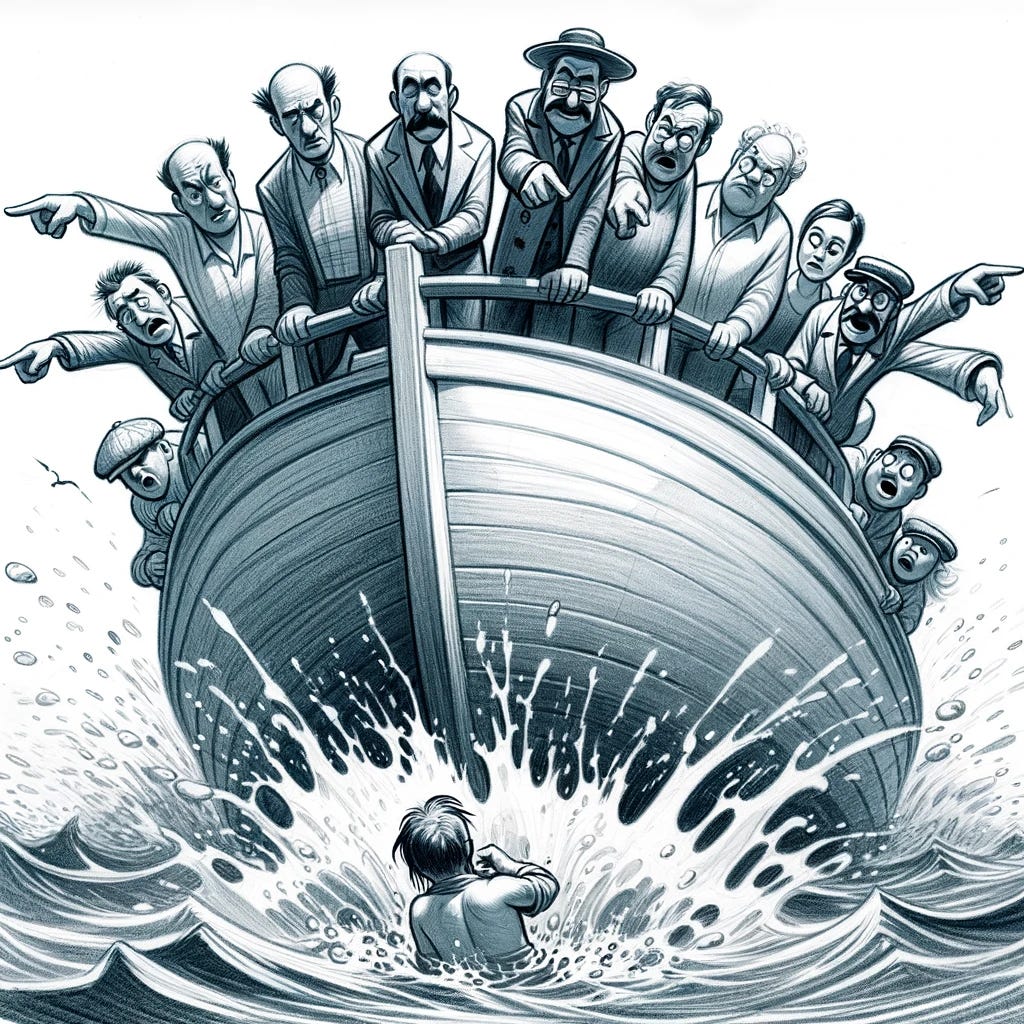Small Ball and The Myth of Greed
Pt. I - Everybody Gasps
This is an important moment in finance. This current funding environment, one that favors profitability, can be a window, or rather a portal, to a version of capitalism we can all get excited about. That is, if we don’t squander it.
Squander? Yes, permanently relegated to small ball. It is a future where our corner of finance is still referred to as “alternative”, only doing a handful of deals per year. They’ll remain bespoke and misunderstood. Our AUM will remain a fraction of a fraction of the rest of “traditional” finance, which will serve the same underwhelming role in society as it does right now.
We never found terms that scale.
I would like to talk about terms that scale - the pieces of today’s innovative term sheets which do and don’t have legs. We could explore the solutions from other corners of finance - already solved problems waiting to be borrowed.
But first, we must dispose of the myth of greed.
And to do that, we must talk about survival.
Everybody Gasps
Falling into the Arctic Ocean is always an acute, survival situation. Falling into the Pacific is too…sometimes. Whether the water is a deadly Arctic -1.8 degrees Celsius (28.8 F), or a balmy equatorial 70, we all react the same. We gasp.
It is an involuntary reaction. The body has signaled that it is in danger and the mind proceeds to act accordingly.
Before you have even bobbed back above the surface, you start looking for lifelines. Your lungs cycle in and out furiously. Your heart races. Your brain is frantic. Your life depends on finding this lifeline quickly.
This is a problem. Though instinctual, it is the wrong way to go about falling into the water 100% of the time.
The first issue is misdiagnosed survival. The water is aqua blue. You’re in the tropics. You’re actually wearing a life jacket. There is a waterslide. And a camera. Wait, you’re on an ad for Carnival Cruises!
Your body has started this chain reaction and totally forgotten the reality of the situation. Luckily, you will figure that out soon enough and, hopefully, remember to smile in time to get the shot.
Forgive yourself for that momentary panic - it was your biology, not you. No biggie.
What if it actually is survival?
It is the Arctic Ocean. You’re fishing for crab on the Deadliest Catch when your foot got caught in a rope and you got yanked overboard. A cold water submersion is a serious situation. Survival is a matter of mere moments.
This presents the same issue from another, colder angle - your survival instinct is still wrong. Your livelihood now depends on overcoming your biological instincts.
First, you have one minute to relax and control your breathing. If you don’t, you will begin to hyperventilate, likely ingesting water in the process. Moreover, as your heart starts to race, when combined with the abrupt cold, an imminent and unrecoverable heart attack nears. Calm yourself!!
If you do survive the first minute, your limbs are only of use to you for another minute or two. That is your narrow window to find a lifeline. First, your fingers will be unable to grab for safety. Then your limbs will stop altogether as your body shunts, prioritizing blood flow to your core and you'll sink like a rock.
Yet, none of this matters if you don’t relax and control your breathing in the first place.
Even if the situation is survival, and not misdiagnosed survival, your best course of action is to defy your biological instincts. Accept the initial, unavoidable gasp. Ignore the rush of adrenalin. Mute the brainstem’s screams for a lifeline.
Act like it is not survival. Take some slow breaths.
Now, you are more likely to do the next right thing, whether that is to smile or grab the lifeline your crewmates have thrown your way.
The Myth of Greed
Unlike an unexpected plunge into water, greed happens on dry land, or from the safety of the boat.
Greed is a judgment made by those who never had to contend with that initial gasp.
From the safety of the boat, or retrospect, the best action seems obvious. You see the helpless soul in the water and think - Calm down - the rescuer’s throw bag practically hit you. Now hurry up and grab it you fool.
Why would someone do anything else? Why do people make short-minded decisions that so clearly sacrifice their long-term best interests? Or even worse - my long-term best interests?
From the safety of the boat, it is easy to overlook the fact that once we feel that initial gasp in our chest, every single one of us thinks we are drowning. There is no time to invoke the haves and have-nots, let alone act on such a conspiracy.
Survival has no room for greed. The myth of greed forgets this and blames people for their faulty survival decision-making and the suboptimal outcomes that ensue.
As the myth of greed propagates, it divides us.
Those who fall in water and, due to their biology, flail, are demonized. They are greedy. They are the enemy of our shared future. If we can just identify these pathetic, greedy people and remove them from power, where would we be?
Even worse, we watch people from the “good team,” fall into the water which reinforces the myth. Thrust into survival mode, they act brashly and in self-interest. Their instincts fail them, just as ours would if we fell into the water.
Having watched another soul succumb to the waters of greed, we start to assume the danger is the water, not us. Understandably, we recognize that the only way not to get wet is to critique from the dry safe shores. We refuse to deal anywhere near the water and criticize those who do. The teams get created - wet vs. dry, greedy vs. generous, good vs. evil.
Once again, our instinct is dead wrong.
To diffuse the myth of greed, we need more people in the water more often, together.
This can not be practiced from the safety of the boat and is best done with others.
Practice feeling the shock. Accept the gasp. Take a few deep breaths. See what is going on?
Cortisol and adrenaline pumps through our veins, whether or not we are actually in danger. It may just be a chilly day in the water. It may only be our ego that is screaming for a rescue. It may be deadly cold. Act swiftly and effectively. Prioritize your safety. Feed your family. Stand for your rights. Survive. Survive. Survive. Breath.
Saving your own life, it turns out, is the least interesting outcome from this training. Being able to recognize just how often you are not in danger, that the water is not actually that cold, likely has bigger consequences.
Without our survival on the line, more paths forward present themselves. Our future selves, communities, environment, you name it, all stand to benefit from us realizing that we are safe.
Lastly, the largest benefit of collective coldwater training?
Compassion. Having felt the gasp ourselves, we will find compassion, heartbreakingly, for the fact that most of the time, we are all just trying to survive. This explains why it is so damn hard to move things forward. Why some people seem like they are fighting the future we seem to all agree on.
It turns out, we have all been on the same team this whole time.
Sure, some are more dry than others.
Resist the urge to delineate new teams. Rather, the task is to welcome everyone into the water.
Gasp together. Offer a life jacket. Take some slow breaths.
Free of the myth of greed, and no matter the temperature, the water becomes less scary. The key is to practice.
Keep jumping in. Keep gasping.
And then, calmly, keep breathing.
Try it now.
From Survival to Finance
Against all odds, this brings us to innovative finance.
I worry innovative finance is at risk of falling for the myth of greed.
It is all too easy to forget what is really happening. There is a deal, and in that deal, there are two or more people, sitting on different sides of a table, gasping for air.
If we miss this, we will get stuck playing small ball. Innovative finance will simply be code for “terms that do not scale.”
Stay tuned for Part II - Terms That Do Not Scale
Innovative Finance Announcements


